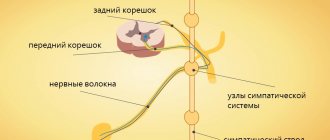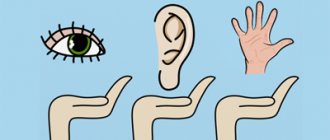Author of the material:
Inna Trofimova
writer, psychologist, gestalt therapist
Tests to determine your type traditionally occupy the first lines of views. Women identify themselves with the names of Greek goddesses, men try to recognize themselves as a commander or a private, all together determine their psychotypes and share the results on social networks. What does knowing your own and others’ psychological types give you? How accurate is this division considered? And what is important – to accurately fall into the psychotype or to work on your individuality? We reflect on the imposed patterns of “typing” and the inner voice.
What are personality psychotypes?
Personality psychotypes are general “sorting” groups that unite people based on a set of character traits and personality traits. The variety of psychological schools provides no less number of classifications of psychological types. But even within each classification there are no clear boundaries between the groups; they smoothly flow into each other, mix, and acquire individual characteristics.
But knowing your psychotype is not everything . Each person is a unity of the general and the individual. A psychotype is a kind of roulette wheel made up of the genes of mom, dad, and all relatives. This is the same psychological “skeleton” that is almost impossible to correct, but you can build up the “muscles” of habits, attachments, inclinations - everything that determines individuality. But personal characteristics are learned later. It is much easier to start from typological features and start communication or collaboration with them.
Psychological typology was developed in order to predict a person’s behavior based on external signs , determine his type of thinking, identify potential strengths or weaknesses, choose the necessary line of behavior, and possible manipulation techniques. The first attempts to “sort” people according to their psychological characteristics were made by astrologers. Later, typology was taken up by psychiatrists, who needed to predict the behavior of patients with psychopathology and prescribe treatment.
In the 1970s, the Lithuanian sociologist A. Augustinaviciute developed socionics - the doctrine that people think, interact, and act in accordance with their psychotype. Initially, socionics considered only psychological compatibility in the family. Later, the teaching became a kind of guide to action for personnel officers, teachers, marketers, coaches, marriage agencies - representatives of professions who have to work with a large flow of strangers.
The word “socionics” comes from “societas” - “society”. Socionics is based on the teaching of the Swiss psychiatrist C. Jung “Psychological Types”.
What kind of work can an extrovert do?
Typical extroverts want to be leaders and interact with other people in this role. The motivation for their work is career growth, recognition from colleagues, and various types of public rewards. Often for an extrovert, work is his life. However, developing vigorous activity to realize their desires, such people sometimes quickly waste their internal energy.
The positive professional advantages of extroverts include the desire for an active social life, easy contact, sociability, and self-confidence. Here is a far from complete list of professions in which they can achieve success: lawyers, attorneys, correspondents, administrators, tourist guides. Information belongs to the RevMed website
Psychotypes according to Jung.
Jung divided personality types based on two general concepts: introversion or extroversion, as well as the main preferences of each personality type:
- Condition 1. Where does a person get energy from? An introvert is a person whose attention is directed inward; he receives energy from within. An extrovert's interest is directed outward; he receives energy from his environment.
- Condition 2. How a person accumulates knowledge. Methodically and scrupulously, based on facts, the sensory-sensing psychotype collects information. Intuitive people act mostly irrationally, based on the situation.
- Condition 3. How a person makes decisions. The thinking-logical type acts after an objective analysis of data. The emotional-feeling type makes decisions based on emotions, without unnecessary thinking.
- Condition 4. Concerns lifestyle. The rational type systematically implements the planned scenario. The perceiving type is often unpredictable, spontaneous, and flexible.
Take a personality type test
Based on the above conditions, Jung identified 8 psychotypes:
Who are introverts, extroverts, ambiverts?
Typically, extroverts are called active and energetic people, and introverts, as the opposite of them, are timid and reserved. In fact, the traits of one psychotype can manifest themselves in another. Therefore, the division is conditional; it is often difficult to understand who you are dealing with: an introvert or an extrovert. Later, an ambivert appeared - a person whose behavior can be characterized by signs of both personality types. To understand who an introvert and an extrovert are and how to communicate with them, you need to carefully study their behavior, reaction to others and external circumstances.
Extroverted Thinking Type (EMT).
Personalities of this type cannot imagine life without facts, arguments, logical conclusions and conclusions. They almost always take the initial data for their reflections from objective reality, that is, the external world - people, objects, phenomena, etc. Among them there are a lot of reformers, propagandists of everything new and better. But, fixated on one idea, they sometimes show grumpiness, tediousness, and biased criticism. That is why for their development it is important to try to look at everything from different points of view and to train the flexibility of perception.
EMT often tries to derive some kind of universal formula of behavior , reaction, understanding, etc. Moreover, if the adopted scheme turns out to be ineffective in some situation, he tries to change objective reality. For example :
- The personality decided that it would be best to respond to type A situations using method B (“If they yell at me, I’ll just give a compliment and the person will calm down”).
- However, in one type A situation, method B was either useless or did not produce satisfactory results (“I complimented them, but they kept yelling at me”).
- It is difficult or seems impossible for a person to give up adherence to his idea, and he tries to find or change something in the outside world that could at least indirectly defend this idea (“My conclusion is logical, which means it is correct”).
- Most often, a person resorts to outdated data, distorted facts, falsification of obvious facts, trying to change objective reality (“The person continued to shout at me, but in fact he is no longer angry, but is only pretending to be angry”).
Do you want to make better decisions, find your ideal career, realize your maximum potential and receive instructions for individual development?
?
All this can be done using the Human Design
. Build your map and get basic decryptions for free.
Such people live with the motto “the end justifies the means”, they are very persistent in achieving what they want, but sometimes they forget about moral principles, their own needs and the needs of their loved ones. This is not to say that people of this type are cruel, they are simply so carried away by their thoughts that they stop noticing everything around them. Empathy is poorly developed. They tend to suppress their own feelings and downplay those of others.
An EMT can be an excellent organizer ; he can easily be trusted to implement long-term plans. But he should learn to avoid generalization and ignoring individual factors.
This type is rarely interested in art and aesthetics, and if he resorts to them, he tries to find logic there, to understand them with his mind, and not to feel them. He makes strict rules and does not accept deviations from them or exceptions. He is categorical, considers everyone stupid who denies his conclusions, because not recognizing something logical is unreasonable. As a result, among such people there are often those who like to argue, to prove (and not blindly impose) that they are right. Grudge is another trait that is often found in these individuals.
Professional activity
Considering the nature of this type of accentuation, a profession should be chosen so that he is constantly among people. A closed office and monotonous work are not for him at all.
Sociability and the ability to conquer almost anyone even after a few minutes of communication usually bring considerable success. Therefore, you should pay attention to such professions as guide, actor, teacher, manager, correspondent, diplomat, doctor, and so on.
The more contacts during the day, the higher the activity and feeling of satisfaction with life.
Managers can safely assign tasks such as presenting a company, product, speaking in public, and concluding contracts. A person with this type of character accentuation will not only cope with them, but will also receive satisfaction from the work process itself.
By the way, an extrovert is also unlikely to refuse business trips. A change of picture, the possibility of making new acquaintances and expressing oneself - all this is of greater interest to him than even the salary and travel allowances themselves.
Extroverted feeling type (ECT).
The thinking of such extroverts is suppressed, because it can interfere with feelings. The voice of reason plays almost no role for them, but it can cause doubts, so they try to cast it into the background. If any thought becomes a real obstacle to feeling, it is blindly ignored, rejected, and declared invalid.
And here a paradox arises. Because the greatest number of doubts or bad thoughts in an ECT appears in relation to those objects (people, objects, activities, etc.) to which he is most attached and which he values highly.
This type thinks in terms of “pleasant-unpleasant”, “good-bad”. He “reads” alien, but global values - humanity, the people, the population of the city, or at least his family. ECT transfers them onto himself, accepting all of this as his own beliefs. For example :
- If wealth is highly valued in his community, a person will fall in love with rich people.
- If the assessment is inclined towards morality, then the person himself will try to become moral and will begin to look for people who meet this criterion.
- If in a locality art traditionally stands above all else, the ECT will go to exhibitions, theaters, galleries and experience only positive emotions about the environment.
- If a family lineage considers a stranger to be kind (or if this stranger simply communicates with other “kind people”), the feeling type will also perceive him that way, even without really knowing him.
The same thing happens in the opposite direction : if society discusses something, this type will also begin to resist any manifestations of such “negativity”, condemn it and anyone who supports it. Due to the appropriation of external traditions, the feelings of ECT sometimes seem insincere, feigned, and exaggerated. But the personality itself will perceive them as their own, adhere to the behavior pattern characteristic of them, so, in essence, there is no acting here.
The advantages of this type include his ability to grasp the values and goals of others, even if they are not immediately recognizable. ECT, in addition, immediately determines the social significance of other people and can skillfully create work or personal groups/pairs. That is, they should be contacted when you need to select professionals for a cohesive and highly effective team or just a candidate for a date/friendship. They are born pimps.
If we talk about the disadvantages, then they include the same limited thinking, or rather the tendency to suppress it, rather than look for the essence of things and phenomena. They lack depth and structure in their thinking, which causes them to often lose sight of factors that negatively affect their lives.
Take a character test
Main types of extroverts
The extroverted personality type and its character are established at birth. And only a strong personality, as a result of enormous efforts, can change himself to a small extent in the future. In general, socionics divides extroverts into 8 psychological subtypes, regarding their relationship to rationality/irrationality, logic/ethics, intuition/sensory perception:
- Logical-intuitive extrovert;
- Logical-sensory extrovert;
- Ethical-intuitive extrovert;
- Ethical-sensory extrovert;
- Intuitive-logical extrovert;
- Intuitive-ethical extrovert;
- Sensory-logical extrovert;
- Sensory-ethical extrovert.
Each extrovert has common traits that vary slightly in one direction or the other, relative to socionics; let’s look at these types in more detail.
Extroverted Sensing Type (EOT).
EOT lives here and now, savors every moment, he is a realist. For him, sensual pleasures are of enormous importance. Often among such people there are real gourmets, aesthetes, connoisseurs of beauty, objective critics, hedonists. The stronger the real feeling they get from another person or object, the more value they assign to these objects.
Such extroverts are in no hurry to easily take everything on faith . Until they see, feel, hear, or otherwise actually notice an object, they do not recognize its existence. Obviously, these people are full of atheists and adequate cynics. They evaluate the outside world by parallels:
- cold-hot,
- tasty-tasteless,
- bright-dim,
- rough-smooth,
- loud quiet,
- fragrant-non-aromatic, etc.
As a rule, EOT is not “sprayed” into many tasks at the same time . He knows what he wants and pursues very specific pleasures. Comfort is important to him, but he does not sacrifice innovations if they “saturate” his senses well.
In communication, this extrovert often fluctuates from the state of a “cheerful drinking companion” to an “artsy esthete.” It’s not uncommon for him to be both, he just shows one side more, based on the objective environment. For example, in an art gallery, an opera, or at a literary evening, he becomes an intellectual, drinks fine wines, treats himself to expensive cheeses, and puts on the best that modern fashion offers. But, going into a cheap bar with friends, he quickly turns into a simple merry fellow, who always has a couple of jokes in stock for all occasions.
However, excessive focus on sensations makes the sensation type an unpleasant interlocutor . If his need for a physical sense of the world is overestimated, he shows increased egoism, uses people and objects only for his own pleasure, devaluing them. His methods of obtaining something become more rude, shameless, and in extreme cases even immoral.
EOT does not tolerate ambiguity and uncertainty. But specificity, clarity, and objectivity are vitally important for him.
His main advantage is the ability to quickly and accurately capture details in everything that surrounds him. If he chooses a profession with an emphasis on materialism (working with his hands, using any receptors), he will succeed in it as a specialist and enjoy it to the fullest.
The downside is the risk of going too deep into a hedonistic lifestyle. In this case, the EOT lives only for the sake of physical sensations, does not strive to develop, and stops monitoring his mental and physical health. He also forgets about his loved ones and remembers them only when he needs to get sensual pleasure from them. After which they disappear for him again.
Extrovert and career
The ideal profession for him is a “person-to-person” type of work. For example, teacher, instructor, doctor, administrator, lawyer. Extroverts extremely rarely choose the “person-sign system” and “person-technology” types because of the need to work independently, separately from others.
Thanks to resourcefulness and eloquence, an extrovert quickly moves up the career ladder. And this is logical, because he is not afraid:
- ask for a salary increase or revision;
- take responsibility for the work of others;
- manage people, organize the work process;
- make quick decisions;
- change types of activities, take on complex tasks.
Monotonous work that requires attention to detail quickly drains an extrovert's strength. He becomes lethargic and his work performance deteriorates.
Extroverted intuitive type (EIT).
EIT is a creative seeker of everything new, unusual and simply what goes unnoticed for others. He is not guided by generally accepted values, but, on the contrary, avoids the obvious. An initiator, a defender of minorities, living for the future. From a distance he “senses” opportunities and prospects, but he himself is not able to explain how he finds them. If you ask him why he accepted an idea on faith, he will not be able to answer accurately and clearly.
He does not tend to operate with facts or come to specific conclusions through logic and reflection. His guesses are not caused by pronounced feelings or personal assessment. And they are not connected with anything tangible at all. On the contrary, his imagination focuses not on the sensations that an object gives, but on its development in perspective. He is a creator. You can often hear phrases like:
- “This man can become a great diplomat, although no one believes in him.”
- “The new technology is not at all useless, as they say. The future lies behind it.”
- “The upcoming event, despite its modesty, can significantly reduce the level of corruption in our city.”
EIT will faithfully serve his idea, he will catch fire with it himself and infect everyone around him. He is an excellent motivator who knows how to instill faith and hope in others. He gets carried away quickly and easily, but in the same way he switches to new opportunities, changes his opinion, interests, which is why he is often contradictory. More often such jumps occur due to the following reasons:
- the object has realized itself, has reached the ceiling in development (according to EIT);
- the prospects turned out to be unreasonable or impossible to realize;
- an even more exciting opportunity loomed on the horizon involving another facility.
For example : an extrovert believes that the construction of a playground is simply necessary for his city. He constantly shares his beliefs and encourages those around him to build. And then he abruptly abandons this idea and switches to something else. Because of:
- the site was built anyway, and the prospect had exhausted itself;
- the city government has banned this event, and there is no way to circumvent the ban;
- the opportunity has arisen to build an entire entertainment complex, and a simple site is no longer interesting.
People around him see this type as a bit of a frivolous adventurer . But he does not pay much attention to this, continuing his endless search for new opportunities. Moral principles or personal comfort are of little importance to him. Among such people there are quite often adherents of mysticism and esotericism.
Thanks to his ability to easily find opportunities, EIT feels great and succeeds in business, production, politics, and sales. He makes contacts amazingly quickly and knows how to take advantage of social opportunities.
The main risk is exhaustion amid uninterrupted searches, constant movement, and at the same time ignoring your limits and health. In addition, due to inconstancy, EIT abandons everything at the peak of development and loses results. As a result, his laurels go to other people.
Take the test: child, adult, parent
Brief characteristics of an extroverted person
So what is an extrovert, you say?
First of all, this is a person for whom what is happening around her is paramount, rather than internal problems and experiences. The main signs of an extrovert can be noticeable outwardly when you first meet a person. This is directly reflected in his behavior, unprincipled communication, as well as in his attitude towards a particular situation. For an extrovert, the value of primacy is determined by society, and not by his inner world. You can recognize an extrovert by his gaze; it is directed clearly at the interlocutor, while an introvert averts his eyes and looks at other objects during the conversation.
An extrovert is a person who will not delve into his soul and reflect on his mistakes. He lives for today, for him the main thing is what is happening around him at the moment. For example, extroverted actors completely and completely enter into character at every rehearsal, not to mention the performance itself.
Is it possible to change from an introvert to an extrovert?
Introverted thinking type (IMT).
BMI thinks logically, but his thoughts are hardly connected with the real outside world. First, he has the idea itself, and then he looks for confirmation of it in the objects around him. That is, he supplies facts to his formula, rather than creating a formula as a result of studying the facts. Moreover, if there is no evidence that he is right, he calmly ignores it.
Convincing BMI of something that contradicts his own point of view is quite a challenge . Often this is simply not possible. He is firm in his convictions and will change them only if he comes to it himself. The more he is dissuaded from an idea, the more committed he is to it. In principle, he has no need to share his thoughts; he is in no hurry to open them to the world or seek support from it.
This is a great theorist, not an activist; he does not try to find out everything at once. He is much more interested in the depth of this knowledge. That is why this type, as a rule, does not have many hobbies, but the existing ones are thoroughly mastered. Such an introvert is a very paradoxical person:
- has deep knowledge in specific areas, but turns out to be a bad teacher, does not know how to convey information that he understands perfectly in an accessible and comprehensive manner;
- in the eyes of those around him, he is domineering, unapproachable, arrogant, cold, sometimes embittered, but the closer people get to him, the more they warm up to him, see him naive, “lost,” and begin to value his closeness;
- when there is a discrepancy between ideas - his own and public ones - he is protected from the opinions of others to such an extent that he sometimes ignores the most obvious and undeniable arguments. Even constructive criticism may not be accepted if it goes against his subjective beliefs;
- can admit the most daring, daring, dangerous thoughts, but when it comes to expressing or actively implementing even the most harmless ideas, he is timid and gives in.
Tends to comprehend everything that happens to him . He even tries to understand emotions and feelings with his brain, and since he is not very good at this, he simply suppresses all experiences or abstracts from them. When communicating, he tries to be polite and kind, but does it with caution, since his outward cordiality is caused by a subconscious desire to “disarm” his interlocutor.
BMI is very secretive , stubborn, and cannot be influenced by others when achieving his goals. Constantly experiences doubts, creates restrictions, and is cautious. In this regard, he is isolated and secluded. It is difficult for him to express himself in such a way that everyone understands the essence of his words, which is why he sometimes considers himself unheard, lonely, and others as stupid. But if this type nevertheless finds someone who understands him, then he begins to overestimate and idealize this person.
The main advantages are depth of knowledge, ability to get to the bottom of things, thoroughness. Cons: Poorly developed social skills, inability to understand people.
How to understand whether I am an introvert, an extrovert or an ambivert
To understand what type of personality you are, we suggest that you familiarize yourself with the characteristic features of each of them in a concentrated form. Information belongs to the RevMed website
| Personality type | Dominant characteristics |
| Introvert | Does not strive to get into noisy companies and public events. It is difficult and long to experience failures and setbacks. He speaks little and listens a lot. Lives in the world of his fantasies. Holds back emotions. Likes to philosophize. Gets attached forever, knows how to remain faithful. Has patience. Meticulous, observant, focuses on details. |
| Extrovert | Strives to make new acquaintances. Easy to climb. Sociable, talkative. Emotional. Everything that's inside instantly spills out. He puts himself on display and dreams of being the center of attention. Can't stand loneliness. Focuses on the opinions of others. |
| Ambivert | He understands the mood of other people well and is intuitive. Equally psychologically stable alone and in company. The choice is always made based on one’s own feelings. Able to adapt to external conditions. Depending on the situation, he becomes a participant or an observer. Expresses emotions in adequate doses, does not keep them to himself, but does not become hysterical. |
Related posts:
- Panic disorder with agoraphobia The onset of a panic attack is often associated with the fear of getting into...
- Constant fear and anxiety in women Almost all people have experienced feelings of anxiety and fear at least once...
- Can temperature change due to stress? The human body reacts to stress in a variety of ways. Many people are interested in maybe...
- Is mental disorder treatable? By mental disorder, experts usually understand a special mental state that interferes with...
Introverted feeling type (ITS).
No matter how paradoxical it may sound, the ICT gives the impression of a cold, indifferent person, detached from the world in his feelings. Those around him consider him indifferent in almost everything, calm, unperturbed. He really looks silent, difficult to reach, incomprehensible. But this is only the outer shell. As cold as this type is on the outside, he is just as passionate on the inside. His feelings are deep, intense, strong. But they really play a greater role for HCI than the emotions of other people or the need to express inner feelings.
Jung believed that among representatives of this type there are much more women than men. Their subjective values are so important to them that they sometimes tend to exaggerate them, make them more intense, or even invent them and instill them in themselves. What they cope with successfully. Among them there are often melancholic people in the full sense of the word. In relationships they prefer:
- adhere to safety, tranquility, the golden mean in everything, do not resort to extremes or risks;
- fence off from passion, vivid manifestations of feelings, impulses. They themselves cannot be passionate outwardly, and if their partner turns out to be so, then they close themselves off from him, move away;
- do not dominate people, but unconsciously still sometimes do it. In this case, their influence takes on the appearance of suffocating and constraining. Their loved ones begin to feel that they have been placed within the framework of a non-existent ideal and any deviation from it will force the ICT to ignore or completely renounce their relatives;
- constantly look for flaws, deviations from the “norm” in relationships. Therefore, they often doubt, experience groundless suspicions, and jealousy. In more rare cases, they show paranoia.
An introvert of this type is very protective of his feelings and tries to protect them from any interference. If someone around you shows their impulses and emotions publicly, the ICT will first try to show neutrality. Perhaps with a little bit of criticism, teaching, or superiority. But the stronger and more assertive the emotional reaction of the interlocutor, the greater the chance that the introvert will abruptly and coldly stop such behavior.
They are always in search of “ideal”, sublime, standard feelings, and simply do not exchange for less. They absolutely need everything to be as in classic novels and melodramas - purely, spiritually, platonically, unconditionally. They often associate exemplary experiences with some kind of spirituality, religiosity, or poetry.
To become the best version of oneself, it is advisable for the HCI to approach affairs with greater internal dispassion (external is enough) and not be afraid to take control into one’s own hands and take initiative .
Positive and negative character traits of extroverts
Positive character traits:
- sociability;
- outward facing;
- a large number of acquaintances;
- impulsiveness;
- activity;
- artistic and public speaking skills;
- optimism;
- erudition;
- leadership skills;
- good nature;
- gaiety.
Negative character traits:
- dependence on the opinions of other people;
- vital need for socialization;
- most contacts are superficial, shallow;
- the guide for action is the present moment;
- hot temper;
- restlessness;
- poor performance of routine work;
- carelessness, frivolity;
- at certain moments - aggressiveness;
- lack of strict control over feelings and emotions;
- unjustified risk taking;
- unreliability.
All of the above signs indicate that a person is an extrovert.
An introverted extrovert (ambivert) has the following characteristics:
- mood swings;
- intuitive abilities;
- lack of random people in your circle of friends;
- comfort both in society and in complete solitude;
- ambiguous assessments from others: he seems either quiet or an active erudite;
- the ability to empathize;
- skillful use of internal and external energy.
According to statistics, there are very few ambiverts - only about 5%.
Introverted Sensing Type (IOT).
IOT lives for the sake of sensual pleasures, while devaluing the significance of the object that gave impetus to the appearance of these sensations. His main focus is on the intensity of his pleasure. At the moment when he experiences it and realizes all its power, everything else is lost from sight for him or ceases to exist altogether. That is why from the outside such people look calm, inert (passive), sometimes slow and lazy. It is difficult to unsettle them or “wake them up”, to tear them away from the analysis of their own feelings.
They find individuality in everything . The same food eaten on different days will seem special and different to them. The same melody sounds different to them every time. Kisses with the same person have different notes. They see everything in their own way, focusing on subjective views and feelings. People of other types very rarely understand their vision and where it comes from, there is so much personal and individual in it.
All this makes IOT a great inventor, creator, adept of non-standard creativity, the engine of art and culture itself. If such an introvert decides to immerse himself in art, acting, choreography, writing, music, then he lives by the principle “I am an artist - this is how I see it.” He definitely finds fans, but is in no hurry to get close to them. It can be difficult with him, because many find him selfish, eccentric, indifferent to real problems and people. This is the same “creative personality” with whom it is very difficult to get along. A few more facts about him:
- treats reality as something banal. She only gives him an impetus, but all his internal mental processes develop further without her participation;
- often does not understand himself, does not particularly strive to explain himself, much less to others;
- lives by sensations that arise here and now, everything else completely falls out of his vision. At the moment of the absence of a noticeable personal sensation, he feels as if he does not exist at all;
- becomes depressed or procrastinates if he does not experience subjective feelings for a long time;
- if he is not involved in creativity, he makes a bias towards philosophy, but without breaking away from the same sensations, that is, complete abstraction cannot be attributed to him.
The advantages of IOT include its focus on the originality of sensations, the ability to highlight their uniqueness, subtle details and subtly feel them. The main disadvantage is the devaluation of the outside world, ignoring its real prospects. Because of this, such an introvert often finds himself in a losing position, loses good opportunities and people around him, and gets “stuck” in himself.
Features of communication with extroverts
Communication with an extrovert will not cause problems. He will be the first to make contact and will not refuse dialogue. Extroverts love to talk, it is better to listen to them until the end, otherwise an overly emotional reaction is possible due to impulsiveness.
Important! An extrovert is always on the move, striving to learn and see new things. Therefore, in order to build a relationship with him, you need to be on the same wavelength with him. This cannot mean that you need to throw yourself into all troubles together; the main thing is to accept his aspirations and constant movement.
There is no need to think that extroverts cannot be hurt or hurt. Yes, they have the ability to filter information and not take everything to heart. But the problems of loved ones are as important to them as their own. They worry and worry, and are capable of experiencing crises. Then the extrovert needs help and support; it is not always possible to cope with the problem on your own.
Introverted intuitive type (IIT).
Science fiction writers, artists, geniuses of imagination and at the same time the most difficult people to understand, even for those closest to them. They can develop to a huge scale an idea that would never have occurred to other people. Among them there are often mystics, esotericists, prophets, great intuitives, connoisseurs of everything paranormal and inexplicable. They think not within the framework of physical reality, but as if beyond it, the flight of their imagination is unlimited.
Of course, they take existing objects as a starting point, but then their views and thoughts quickly acquire a completely subjective character. The result is an image whose connection with the real object of inspiration is almost imperceptible to outsiders. They think through everything that has no physical analogues in the world. At the same time, their language becomes irrational, and they cannot accurately explain to others their understanding of the world.
They operate not with facts , values, sensations, but with images and associations that arise from them. However, on a subconscious level, they come to some ideas through learned experience, and not always their own. This could be experience gained from:
- reading fiction and fantasy literature,
- acquaintance with myths, legends,
- mastering religious books and sacred texts,
- watching films on similar topics,
- studying art objects dedicated to the above, etc.
In the eyes of others, such an introvert constantly fluctuates between the definitions of “sage-fool” or “genius-crazy.” He is partly both. Performs the function of a contemplator and immediately sees opportunities, but not for active action or simply external development, but for aesthetic, less often spiritual growth. He does not need the approval of others to maintain his belief in a particular concept. More often, it’s even the other way around - the less they accept him, the more he strengthens his beliefs.
IIT is a kind of ascetic . Comfort, sensual pleasures, and physical advantages do not play a decisive role for him. He often ignores them, sacrificing everything for the development of his idea. He would hardly be able to become a good teacher due to his illogicality and weak argumentation of explanations, but he makes an excellent educator and mentor.
Thanks to his advantages, he could become an excellent preacher of morals and aesthetics. He does not try to impose his own views on others, but simply informs, “broadcasts.” Becoming an artistic exponent or initiator of new trends in his era is also a feasible task for him. His biggest problem is isolation from his own feelings, poor adaptation to real conditions. Because of this, he gets lost in quite ordinary everyday conditions and sacrifices too much of his health and well-being for the sake of, as it seems to him, great ideas.
Later, based on Jung's typology, the Myers-Briggs classification was proposed in the West. And that was the beginning. Modern psychology and psychiatry know a lot of different typologies that use their own approaches, trying to apply them in practice.
Silent history
Personality typology in psychology is interpreted as a system of individual attitudes and behavioral stereotypes, formed to explain the differences between people.
Even in ancient times, scientists, writers and philosophers classified people according to various criteria. Aristotle introduced the concept of “virtue”. This is how he outlined the internal order and structure of the soul. Virtues, according to the philosopher, are divided into moral (ethical) and mental (reasonable).
Ethical virtues represent a mean between two extremes: excess and deficiency. They are characterized by courage, majesty, friendliness, ambition, truthfulness, courtesy, wisdom, etc. Regarding moral virtue, Aristotle said that it is “the ability to do the best in everything that concerns pleasure and pain, and vice is its opposite.”
Ethical virtues of character, according to the philosopher, are formed in the process of life and as a person gains experience, and rational virtues - through learning [A. Chanyshev, 1987].
In 314 BC. Theophrastus proposed his typology. For him, human character is a set of mental properties that are manifested in actions and words. He divided people into 30 types, which he described in detail in his work “Characters”. The names of the types speak for themselves: pretender, flatterer, gossip, talker, impolite person, curmudgeon, braggart, etc. [ABOUT. Freidenberg, 1941]
Hippocrates created the doctrine of the internal juices of man. He highlighted:
- yellow bile;
- black bile;
- blood;
- slime.
Depending on which fluid dominates in a person, he identified the following types of temperament: choleric, phlegmatic, sanguine and melancholic [B. Petrovsky, 1977].
This is one of the oldest personality typologies, which, despite the generality of characteristics, is still used today. We will return to it later.
Around the middle of the 20th century, the study of personality began to be given special importance. Various options have emerged for classifying people according to their distinctive characteristics. Among them were:
- Personality typologies of Ernst Kretschmer and William Sheldon: they explain the relationship between body type and temperament.
- Types of experiences: introverted, extroverted, ambiequal, coartistic, dilatory. This classification was put forward by Hermann Rorschach.
- Types of representations by Erich Rudolf Ensch : integral, differentiated.
- Forms of life activity , which, according to Eduard Spranger, are divided into aesthetic, religious, economic, social, power, theoretical, etc. [Org, 2017].
Most of the typologies proposed during that period have historical value and are practically not used today. But among them there are those that became the foundation for the development of psychology. We propose to consider them and more modern classifications of personality typologies further.
What other typologies of psychotypes exist?
It is impossible to know or use all typologies at the same time. And it's not necessary. Personality questionnaires of a personnel officer are absolutely useless for business negotiations. Each specialist has his own methods that he uses in his work:
- Types of temperament according to Hippocrates (or the specificity of nervous activity according to Pavlov): sanguine, choleric, melancholic, phlegmatic.
- Love typology: eros (sensuality), ludus (playfulness), mania (obsession), pragma (practicality), agape (sacrifice), storge (friendliness).
- Gannushkin's typology of psychopathic characters: paranoids, schizoids, hysterics (and others).
- Accentuations according to Leonhard: demonstrative, paranoid, excitable, pedantic, schizoid, hyperthymic type.
- Separation by type of perception: kinesthetic, visual, auditory, discrete.
- Enneagram Personality: Perfectionist, Peacemaker, Thinker, Enthusiast (and others).
- System-vector typology: sound, visual, skin, olfactory, oral (and other) vectors.
Take a temperament test
All scientific, pseudo-scientific and non-scientific classifications have one thing in common: their relativity and limitations. Attempts to resort to rigid typing of people are considered incorrect, because they deprive the main thing - freedom of choice. After all, it’s enough to label a person with the word “hysterical” or “crazy” to expect patterned behavior, thinking, hobbies, and even diseases from him. Sometimes this provokes conflict. Sometimes a person really stops looking for himself and begins to live according to a pattern.
Take the perception type test
What are the advantages of an extroverted child?
The main advantage of an extrovert is his innate adaptability to communication, which is what we will call the external need of such children.
While an introvert should be introduced to society and taught how to behave correctly in a group, an extrovert is fully adapted to this. Without any training, the baby enters any society and within a couple of minutes communicates as equals, this is the first advantage of this personality type. If we consider what an extrovert means to his parents, it is worth saying that this is better than an introvert.
Advantages of an extroverted child:
- Quick adaptation in kindergarten, school;
- Childlike developed communication skills, able to communicate with both children and adults;
- Asks interesting questions without hesitation;
- Shows dissatisfaction with people or situations;
- Quickly gets involved in a new game, even if the children on the playground are already playing it;
- He is not afraid of attention and publicity; on the contrary, he tries to put himself on display;
- An extroverted child is open to everything new and unknown.
An extrovert does not need to be taught all of the above; this frees parents from the lion's share of work with such children.
But there are pitfalls here too. In particular, if you yourself are an introvert, and your child is an extrovert, then it will not be easy. Introversion in psychology - what is it?
How to learn to listen to yourself?
If you listen to yourself, you can hear your inner monologue. And our opinion about ourselves is not always really ours. “I’m so absent-minded,” a person thinks only because the teacher said so. Or “I don’t know how to get along with people, so I won’t be able to achieve anything big,” says someone to whom their mother repeated these words as a child. All of this is the conscious or unconscious attempts of other people to squeeze us into a framework invented by someone.
When we don’t hear our inner voice, but live by other people’s beliefs, ideas about happiness or failure, this leads to internal conflict. It will take painstaking internal work to distinguish between your own and other people’s attitudes. These efforts will pay off. Because everything we tell ourselves gives or takes away energy. Once we learn to listen to our inner voice, we can change our internal dialogue and create the life we want.
So, steps that will help you get closer to your “I”:
Step 1. Listen to your body.
Our body is a delicate instrument that can tell us much more than expected. The slightest tension in the neck, pain in the temple or in the abdomen is a consequence of a muted feeling or an unresolved problem. We are accustomed to paying attention to pain only when it becomes unbearable. We often take minor symptoms with pills or ignore them.
To recognize your body's signals, you need to recognize your feelings - accept them, live them, and not extinguish them. Recognize your right to fear, uncertainty, dissatisfaction, sadness - then it will be easier to learn to sense body signals.
Practice 1 . Relax before bed. To do this, you need to lie on your back, straighten your arms and legs. Mentally walk through every part of the body, every organ from the little toes to the top of the head. Separately walk along the left and right leg (arm), each finger, each vertebra. This technique not only helps relieve muscle tension, but replaces “counting rams” for those who have difficulty falling asleep.
Practice 2. Be your finger (eye, stomach). To do this, you need to sit comfortably and imagine the organ that is bothering you - for example, the knee of your right leg. Then mentally move to the knee, talk on his behalf. Tell why it hurts (perhaps you have to carry a lot of weight), what it warns you about (you don’t want to go to a job you don’t like), what attention it needs. Technology helps you learn something interesting about yourself and gain new experiences.
But you need to remember that bodily practices do not replace going to the doctor. If something is really bothering you, it is better to get examined and only then talk to your inner voice.
Step 2. Listen to your laziness.
Laziness, which we are used to condemning and overcoming, is actually an indicator of our energy. For example, athletes have a rule: if getting ready before training is difficult, it means you are doing something wrong: you have chosen the wrong load, exercises, or working weights. In life, everything is not so revealing, but the same mechanism works: laziness arises not due to a lack of strength, but due to a lack of meaning. No one will be lazy if the activity arouses sincere interest and brings one closer to a feeling of harmony with oneself. As soon as we get involved in an exciting activity, our eyes light up, fatigue evaporates, energy seems to come from nowhere.
Sometimes laziness actually signals excessive fatigue. To fight it means to drive yourself into even greater stress. Therefore, if laziness has not been a lifelong quality, it is better to accept the distress signal and have a good rest.
Are introverts really smarter?
brain
The dividing line is dopamine. This is a neurotransmitter produced in the brain and is responsible for the feeling of satisfaction. During a scientific experiment, it was found that extroverts in a state of excitement exhibit strong activity in the tonsils and nucleus accumbens. The former are responsible for the process of emotional stimulation, and the nucleus is part of the dopamine system (pleasure center).
Extroverts and introverts produce dopamine in the same way, but the reward system responds to it differently. For extroverts, the process of processing stimuli takes less time. They are less sensitive to dopamine. To get their “dose of happiness”, they need it along with adrenaline.
Introverts, on the other hand, are overly sensitive to dopamine. Their stimuli travel a long and complex path through areas of the brain. Another neurotransmitter, acetylcholine, plays a major role in their reward system. It helps you reflect, concentrate on the task at hand, work productively for a long time and feel good during internal dialogue.
pros
Being an extrovert - what does it mean? Let's look at the strengths inherent in this psychotype.
- Communication skills
Extroverts are always ready to communicate. They easily get along with new people and can chat for hours about anything and with anyone. They love to be the center of attention, are able to “ignite” those around them with their ideas, and have good organizational and leadership skills.
- Energy
Extroverts literally gush with energy. They are always on the move, always busy with something active. Next to them, life boils and seethes. They need less time than introverts to recover, so they can work for a long time without rest. They are filled with energy during communication and lose it when alone.
- Determination
Doubting, thinking, scrupulously weighing all the nuances is not about extroverts. They make decisions impulsively and quickly. This trait gives them a competitive advantage over introverts who are slow-witted. If they make a mistake, they are not particularly upset and quickly adjust their plans.
- Flexibility
Representatives of this psychotype easily adapt to new conditions. In extreme situations, they demonstrate composure and composure, which helps them make the right decisions under time pressure. They love novelty and strive to fill their lives with it with all their might. Sitting in a comfort zone is not their thing.
- Optimism
A love of life and a positive attitude are the strengths of extroverts. They do not worry for a long time because of failures, do not overwhelm themselves with negative thoughts, and do not get offended by others.
More than 100 cool lessons, tests and exercises for brain development Start developing










